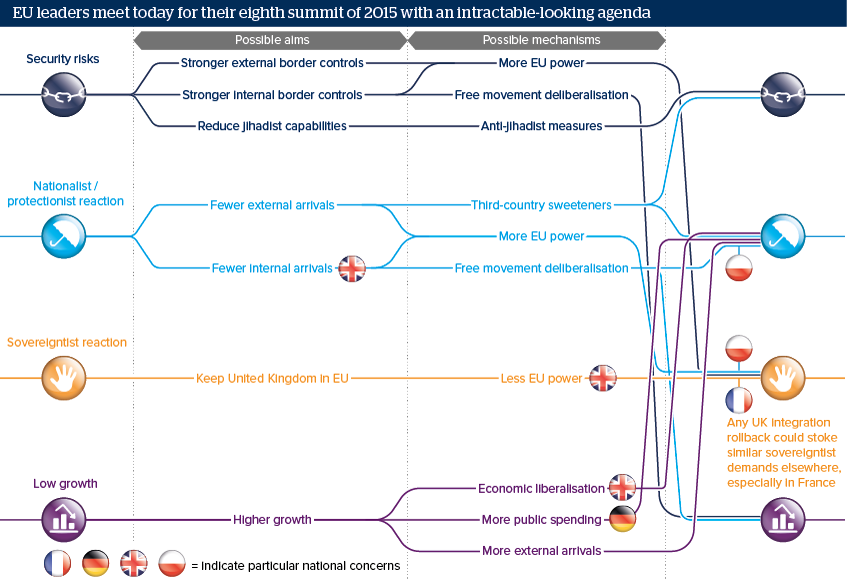EU risks spending 2016 trapped in policy loops
The EU will find it hard to act on any one of its policy problems without exacerbating another

Source: Oxford Analytica
Outlook
The EU has resolved multiple problems simultaneously before, via a package deal, or a 'grand project' that member states can sell differently at home. Now, many possible EU policies are mutually incompatible, making a package deal difficult. Several EU problems seem generated by integration itself, raising the stakes. The single market and free movement are at issue, along with EU powers in border control and immigration -- totemic areas of national sovereignty.
The political will to preserve the EU, and keep the United Kingdom in, will be strong. However, the political strength of nationalist/protectionist/ sovereigntist forces and the approach of the UK EU membership referendum and 2017 French national elections will constrain integration steps. The most likely scenario is that the EU grinds through on the basis of unsatisfactory compromises.
Impacts
- The next long-term EU budget -- a classic opportunity for win-win solutions -- is not due for negotiation until 2019/20.
- Stronger growth and a fall in unemployment would probably benefit the EU most in 2016.
- France will paradoxically be in a strong position, because other states will want to help its traditional elites resist the National Front.
- In foreign affairs, the EU will seek to build on the Iran nuclear and COP21 deals, seen as examples of successful multilateralism.
See also
- Migration will pose Europe insoluble problem - Dec 30, 2015
- Prospects for the EU in 2016 - Nov 30, 2015
- More graphic analysis